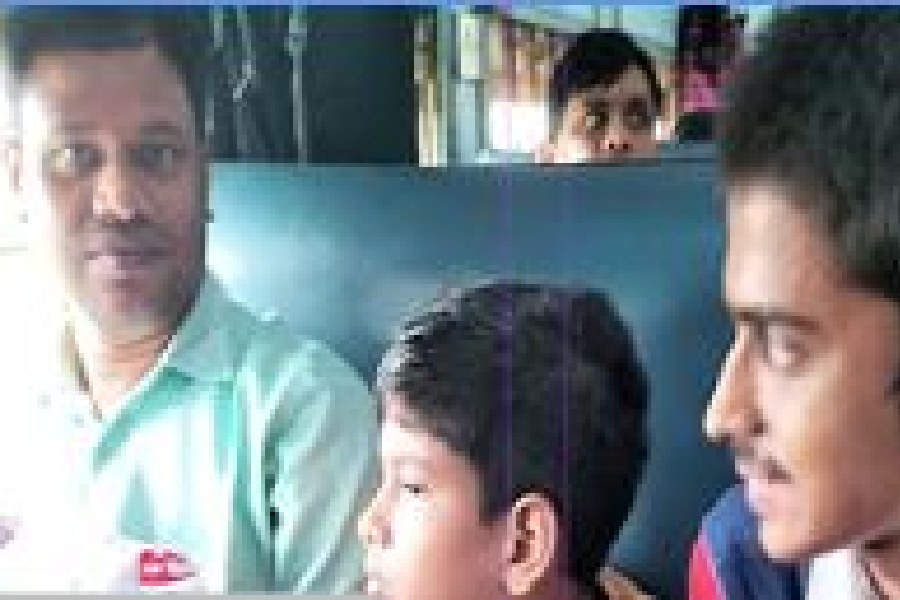A group of individuals with autism travelled from West Burdwan to Kolkata by train despite the fact that the organisation that was bringing them could afford private transport.
Another group of individuals with varying special needs spent a morning at a popular puja pandal.
Organisations that work with individuals with disabilities insist on taking people with disabilities to public spaces for visibility, interaction and acceptance.
Unless they are seen, they will not be understood, said a special educator.
“We talk about non-acceptance of individuals with special needs, but we should not expect it to happen without making an effort for it. If we keep taking our children to malls, parks, public spaces, other people will get used to them and they themselves would learn how to conduct themselves in public,” said Arunasis Adhikari, a parent who has a child with autism and is a managing trustee of Bhabna, which runs a residential home for individuals with autism in West Burdwan and a school in Kolkata.
People with many years of work in the disability sector said that when people without disabilities see those with disabilities in public spaces, they understand their challenges and it generates sensitivity in them.
“It is difficult for the general public to understand, but when they start seeing those individuals, they feel for them. Imparting information through seminars is theoretical, but to see people move around them is more hard-hitting,” said Anamika Sinha, director, Manovikas Kendra.
The institute has a community exposure programme where students are taken to malls, post offices and banks once a month.
It is compulsory for those at the pre-vocational and vocational classes.
“Initially, they require the support of caregivers to accompany them. But if it becomes a regular activity, they become accustomed to the environment. The general public also see and understand the difficulties they are going through,” said Sinha.
She said they encourage parents to take their children out to create the scope for visibility and interaction.
But non-acceptance from society often makes the parents feel let down.
“Those who have severe challenging behaviour face more non-acceptance, but we should keep fighting the situation. Unless we take them out to the community, they will not be understood. It is a vicious circle,” said Sinha.
Madhumita Dasgupta, of Indian Institute of Cerebral Palsy, said the more people see individuals with special needs, the more they understand how to behave with them. “Often people do not know what to say or how to say, but more interaction will help remove those gaps,” said Dasgupta.
Parents have encountered indifference, the look of stigma, lack of infrastructure or disapproval of taking them out.
“If a mall does not have a ramp, it does not mean I will stop taking my son there. I will take him and perhaps that will help the authorities realise the need for a ramp. I am a customer and eventually, they will understand the need for it,” said a father.
Adhikari said the effort has to be right from the beginning. “I have taken my son to cinemas and now he is used to it.... It started with sitting 10 minutes and gradually we increased the duration... now he sits through three hours,” he said.
“He might not enjoy the film and perhaps takes a mobile along, but he sits through it.”
But the onus is not just on parents, said Reena Sen, former executive director of IICP. “The onus cannot exclusively be on parents. There has to be a collective will. Parents and people with disabilities will take the lead, but there has to be a concerted effort of the civil society to share the load to create a change and make life easier for people with disabilities,” said Sen.
“Unless there is a change, our public spaces will remain public spaces for some and not all.”
